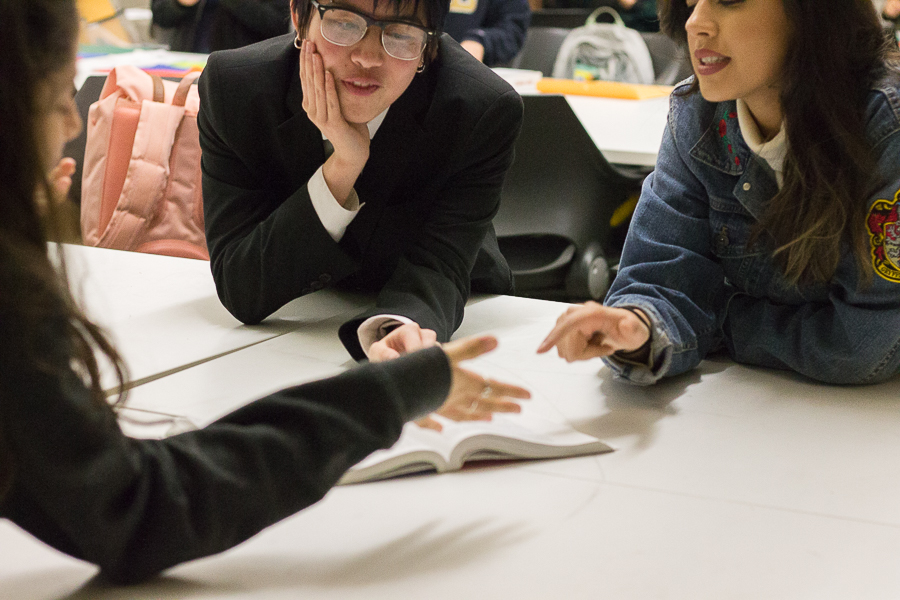
The liberal arts teach life skills that science just can’t
 Since the advent of modern science, students who have an inclination toward the discipline have questioned the “point” of studying the arts. The argument is an old one, and for unknown reasons there will always be a back and forth on why a liberal arts education is an asset. The opinions are banal and resolve into platitudes. Some students will continue to believe the sciences are more important — there’s no point trying to convince them. But there are students who are unsure whether it’s necessary to study outside their discipline. And to them, there’s one, hard answer: Yes.
Since the advent of modern science, students who have an inclination toward the discipline have questioned the “point” of studying the arts. The argument is an old one, and for unknown reasons there will always be a back and forth on why a liberal arts education is an asset. The opinions are banal and resolve into platitudes. Some students will continue to believe the sciences are more important — there’s no point trying to convince them. But there are students who are unsure whether it’s necessary to study outside their discipline. And to them, there’s one, hard answer: Yes.
From personal experience as a science major, humanities classes exude a different vibe — a lot more conversation, exchange of ideas and teamwork. And while a STEM student can argue that those same skills are developed in their labs or on the field, it’s not the same. What is taught in the humanities is risk-taking. Today’s world is all about taking chances and putting yourself out there. These skills are not only assets in these subjects, but requirements. Humanities students are more prepared to stick their hand up in class and be wrong. That’s a rarity in a world that always wants to be right.
Students in the arts must take science and engineering classes to graduate. I can’t imagine that they enjoy them all the time — but there’s an expectation that those subjects must be understood. So why doesn’t it go the other way? When my peers in STEM say they don’t like reading or writing, it makes me wonder if it’s “cool” to not like what is the foundation of education. If someone said they didn’t like science, it’d be an outrage. It’s not about falling in love with subjects, it’s about understanding what makes them relevant.
Contrary to popular belief, there are wrong answers in the humanities. A stream of consciousness scribbled on paper will never be rewarded — professors are trained to spot it. For most science students, there comes a point when this realization is made. Resentment follows. Evidently, communicating and organizing ideas is not an easy feat, and humanities students do it commendably. The idea that these classes are “easy” is a put-down. Students in the arts are not doing less — they’re using their brains in a way that is hard for the average science student to do.
If being challenged in a way that is atypical can elicit such strong opinions about entire fields and about the passions of thousands of fellow students, it doesn’t seem very well-adjusted. One of the major problems with science is that scientists are not able to communicate their discoveries and progress to the layman. That information is limited to just those part of the immediate scientific community because only they have the lexicon to understand it. It’s imperative to stop that — to spurn the arts is to leave untapped potential avenues for recognition.
More than loss of opportunity, what’s worrying is that my peers in STEM want to specialize so early. Finding passion in a subject is quite different from shunning the others. And this is where risk comes in again. Students want to be comfortable all the time — take classes that they enjoy, learn about things that interest them, be around students who share the same passions. Putting oneself in a class or environment that’s different is an asset. Maybe that sociology class isn’t interesting, but there’s still a takeaway and still an opportunity to work and learn from peers who are diverse.
The humanities are not hobbies. Without these subjects, science could not have advanced to its current place in society. We will always need them, and to convince ourselves that they don’t matter does a disservice to the investments we’ve made in our education. STEM students must understand this. As irrelevant as those GEs may seem, they stress the importance of the world that exists outside the realm of science. There’s not always a right answer, but to think the humanities don’t matter anymore is certainly a wrong one.
Written by: Samvardhini Sridharan — smsridharan@ucdavis.edu
Disclaimer: The views and opinions expressed by individual columnists belong to the columnists alone and do not necessarily indicate the views and opinions held by The California Aggie.


